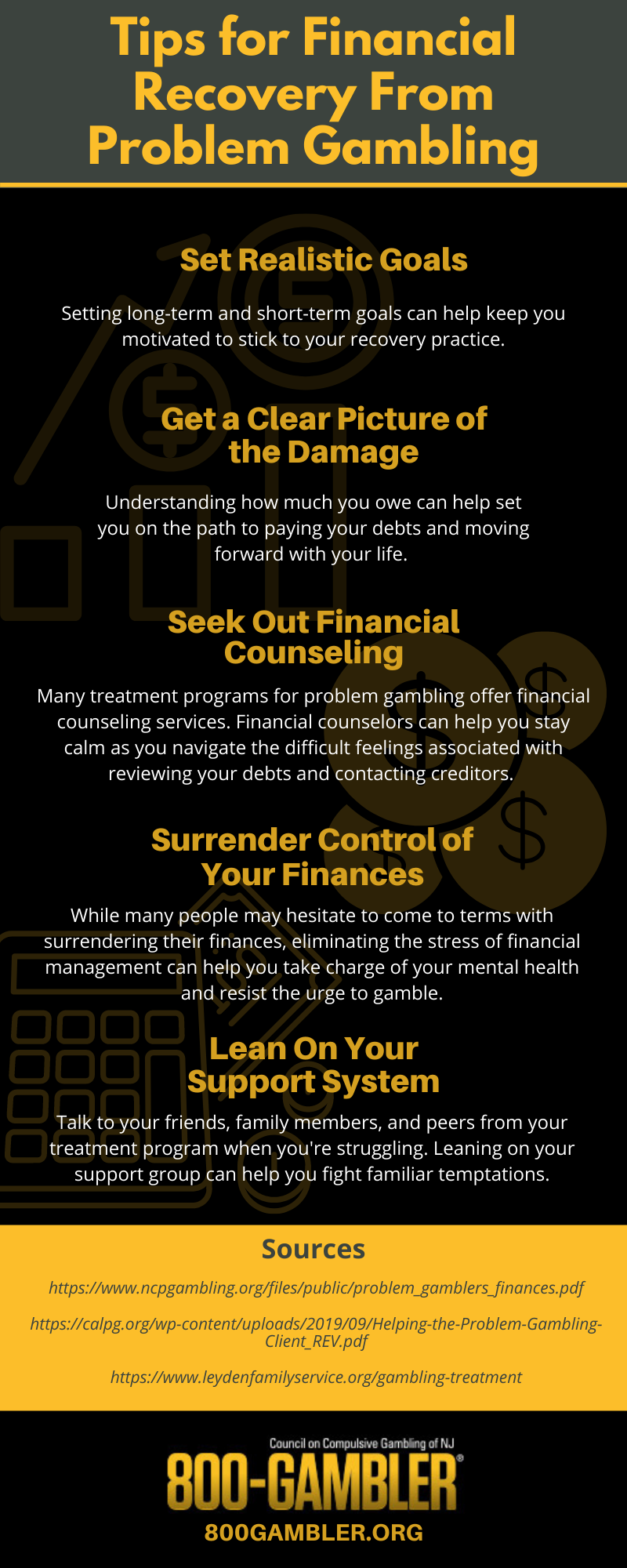Welcome to the fascinating world of money management for gamblers: setting limits. 🎰💰 In this article, we’ll delve into the strategies and techniques that can help gamblers stay in control of their finances and have an enjoyable gambling experience. So, whether you’re a seasoned gambler or just starting out, this guide is here to assist you in making smart and responsible decisions. Let’s get started!
Picture this: you’re at the casino, surrounded by flashing lights, the sounds of slot machines, and the thrill of anticipation. It’s easy to get caught up in the excitement, but it’s crucial to remember that responsible gambling begins with setting limits. By establishing boundaries on how much you’re willing to spend and sticking to them, you can safeguard your bankroll and avoid any financial pitfalls.
Setting limits doesn’t mean taking away the fun; in fact, it’s quite the opposite. By managing your money wisely, you can extend your playtime, savor the excitement, and increase your chances of walking away a winner. So, whether you’re hitting the blackjack tables or trying your luck at the roulette wheel, understanding the importance of money management is essential for a positive and enjoyable gambling experience. Let’s explore some practical strategies to help you do just that!
- Understand your budget: Determine how much you can afford to spend on gambling.
- Set a loss limit: Decide on a maximum amount you are willing to lose.
- Create a win goal: Set a target for the amount you want to win.
- Track your progress: Keep a record of your wins and losses to analyze your gambling habits.
- Stick to your limits: Discipline yourself to stop gambling once you reach your predetermined limits.

Money Management for Gamblers: Setting Limits
Gambling can be a thrilling and enjoyable pastime, but it’s essential to approach it with caution and responsible money management. Setting limits is a crucial aspect of gambling to ensure that you don’t spend more than you can afford. In this article, we will explore the importance of setting limits in money management for gamblers, provide practical tips on how to do it effectively, and discuss the benefits of this practice.
The Importance of Setting Limits
Setting limits is vital for any gambler because it helps establish control over your finances and ensures responsible gambling. Without limits, there is a higher risk of overspending and falling into financial trouble. By setting limits, you can enjoy the thrill of gambling while maintaining a healthy relationship with your money.
First and foremost, setting limits allows you to define your budget for gambling. This means determining how much money you are willing to allocate to gambling activities without interfering with your essential expenses, such as rent, bills, and groceries. By establishing a budget, you can ensure that you are gambling with discretionary income and not putting your financial stability at risk.
Furthermore, setting limits helps prevent chasing losses. After losing a significant amount of money, it’s natural to feel the urge to continue gambling to recover those losses. However, this can lead to a downward spiral and result in even more significant financial losses. By setting a limit on your losses, you can protect yourself from emotional decisions and make rational choices based on your predetermined limits.
Lastly, setting limits enables you to track your gambling patterns and evaluate your overall performance. By keeping a record of your wins, losses, and time spent gambling, you can analyze your gambling habits and make informed decisions moving forward. It allows you to recognize any negative patterns and take corrective actions, such as reducing your gambling frequency or seeking help if needed.
Tips for Effective Limit Setting
While setting limits is crucial, it’s equally important to do it effectively to ensure that it serves its purpose. Here are some practical tips for effective limit setting in money management for gamblers:
1. Define your budget: Determine the maximum amount of money you are willing and able to spend on gambling activities. This will be your overall budget, and it should not exceed your discretionary income.
2. Set a loss limit: Decide on a specific amount of money that you are comfortable losing in a gambling session. Once you reach that limit, it’s time to walk away and evaluate your next move.
3. Establish a time limit: Determine how much time you want to dedicate to gambling in a single session. This will help prevent excessive gambling and ensure you have time for other important aspects of your life.
4. Use a separate gambling account: Consider opening a separate bank account or using a dedicated e-wallet for your gambling activities. This will make it easier to track your expenses and stick to your limits.
5. Take advantage of self-exclusion options: Many online gambling platforms offer self-exclusion programs that allow you to restrict your access to their services for a specific period. Consider utilizing these tools if you find it challenging to stay within your limits.
By following these tips, you can establish effective limits that align with your financial situation and gambling goals. Remember, responsible gambling is about having fun while staying in control of your finances.
The Benefits of Setting Limits
Setting limits in money management for gamblers offers various benefits that can significantly enhance your gambling experience.
One of the primary benefits is the peace of mind that comes from knowing you are playing within your financial means. This reduces stress and anxiety, allowing you to better enjoy the gambling experience.
In addition, setting limits promotes discipline and self-control. By adhering to your predetermined boundaries, you develop a level of self-awareness that can extend to other aspects of your life.
Moreover, setting limits can help improve your decision-making abilities. When you establish clear boundaries, you are less likely to make impulsive and irrational choices. This can lead to better judgment in both gambling and other areas of your life.
Furthermore, setting limits can protect your relationships. When gambling becomes excessive, it can strain familial and personal connections. By establishing limits, you can ensure that gambling remains an enjoyable and harmless activity that doesn’t negatively impact those around you.
Lastly, setting limits can foster a healthier approach to gambling. It allows you to view gambling as a form of entertainment rather than a means to make money. This mindset shift can lead to a more enjoyable gambling experience where losses are accepted as part of the game.
In conclusion, money management for gamblers is essential for both enjoyment and financial safety. Setting limits plays a crucial role in this process by helping you establish control, prevent overspending, and track your gambling habits. By following the tips provided and recognizing the benefits of limit setting, you can ensure that your gambling experiences are responsible, enjoyable, and sustainable.
Key Takeaways: Money Management for Gamblers: Setting Limits
- Set a gambling budget and stick to it, only wagering what you can afford to lose.
- Establish limits on both your wins and losses to prevent excessive gambling.
- Utilize self-exclusion programs or gambling limits offered by casinos to control your play.
- Take breaks and avoid chasing losses, as this can lead to impulsive decisions and more losses.
- Prioritize other areas of life, such as work, relationships, and hobbies over gambling to maintain balance.
Frequently Asked Questions
Welcome to our FAQ section on money management for gamblers! In this section, we’ll address some common questions related to setting limits for your gambling activities. Whether you’re a seasoned player or just starting out, managing your money effectively is crucial for a positive gambling experience. Read on to find answers to some key questions in this area.
1. How do I determine my gambling budget?
When setting your gambling budget, it’s important to consider your overall financial situation and set limits that are realistic for you. Start by evaluating your disposable income and determine how much you can comfortably spend on gambling without jeopardizing other financial obligations. It’s also helpful to set a specific time frame, such as a monthly or weekly budget, to ensure you’re not spending more than you can afford.
Remember, gambling should be viewed as entertainment, not a source of income. Be honest with yourself about how much you’re willing and able to spend, and stick to that budget. By setting a gambling budget, you’ll have better control over your spending and reduce the risk of financial strain.
2. What is the importance of setting win and loss limits?
Both win and loss limits are crucial components of responsible gambling. Setting a win limit helps you secure your profits and resist the temptation to keep playing when you’re on a winning streak. It’s easy to get caught up in the excitement, but knowing when to stop can ultimately help you come out ahead.
On the other hand, setting a loss limit is equally important. It prevents you from chasing losses and ensures that you don’t spend more than you can afford to lose. By establishing a loss limit, you’ll protect yourself from excessive losses and keep your gambling activities within a reasonable financial boundary.
3. How can I track my gambling expenses?
Tracking your gambling expenses is an essential part of effective money management. One simple method is to keep a gambling diary where you record every wager, win, and loss. This will help you have a clear understanding of your gambling patterns, identify areas that require improvement, and evaluate whether you’re staying within your set limits.
There are also various money management apps available that can assist you in tracking your gambling expenses. These apps allow you to input your bets, wins, and losses, providing you with a comprehensive overview of your gambling activities. By regularly reviewing your gambling expenses, you’ll be able to make informed decisions about your future wagers and adjust your budget as needed.
4. Are there any strategies for managing my money effectively while gambling?
A key strategy for managing your money effectively while gambling is to divide your bankroll into smaller portions. This helps you avoid betting too much money in one session and enables you to play for longer periods. Instead of placing large bets, consider making smaller, more calculated bets that align with your budget.
It’s also important to resist the urge to chase losses. Accept that losses are part of the gambling experience and don’t let emotions drive your decisions. Stick to your predetermined limits and avoid increasing your bets in an attempt to recover losses. By staying disciplined and adhering to your set limits, you’ll have a more enjoyable and responsible gambling experience.
5. How can I take a break or self-exclude if I need to regain control?
If you find that your gambling has become problematic and you need to take a break or self-exclude, many reputable gambling platforms offer options for self-control. Most online casinos have functions that allow you to set temporary or permanent breaks, during which you won’t be able to access your account or place bets. This can provide you with the necessary time and space to regain control over your gambling habits.
If self-exclusion isn’t enough, some jurisdictions offer voluntary programs that allow you to be legally barred from entering casinos or other gambling establishments. These programs can provide additional support for individuals who struggle with maintaining control over their gambling activities.
How to Manage Your Bankroll Like a Pro | Bankroll Management: Cash game vs Tournaments
Summary
Managing your money when gambling is crucial. Set limits on how much you can spend and stick to them. Keep track of your winnings and losses to stay in control. Remember, gambling should be fun, not a way to make money.
It’s important to prioritize other financial responsibilities and not let gambling consume your life. Seek help if you feel like gambling is becoming a problem. Remember, setting limits is the key to responsible gambling.
